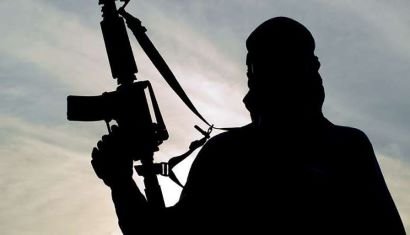Terrorism menace

THERE is no mistaking the hydra-headed monster of militancy that Pakistan is facing. The last few days have been particularly illustrative of the evolving nature of this multi-dimensional threat. On Wednesday, two separate attacks — both by little-known groups — took place in Balochistan’s Sui and Zhob areas, resulting in the martyrdom of 12 soldiers and a civilian. Seven militants were also killed in the incidents. The Sui attack was claimed by a Baloch insurgent outfit while the other, an assault on a military installation in Zhob Cantt, was claimed by the Tehreek-i-Jihad Pakistan. There was speculation about the latter being a splinter group of the TTP, which denied this; some are now suggesting it is an independent group ‘inspired’ by the Islamic State’s Khorasan chapter. The shape-shifting nature of the militant landscape intensifies the existing challenge. According to a recent report by the Centre for Research and Security Studies, the 267 fatalities of security personnel recorded in the first two quarters of 2023 make up nearly 93pc of their fatalities during the entire preceding year.
Meanwhile, KP police recently shed some light on another category of terrorism: target killing. Its counter-terrorism department has claimed that IS-K is behind the murders of several Islamic scholars as well as members of minority communities in Peshawar, adding that some 60 IS-K members broke out of prison after the Afghan Taliban’s return to power in Kabul and managed to enter Pakistan. At least three Sikhs, an equal number of Muslim clerics and a Christian have been mowed down in the city since February 2023. The victims’ profile illustrates how no one is safe from violent religious extremists: those in their cross hairs can be from minority communities or from the majority faith. All it takes is a twisted mindset that rejects diversity and freedom of religion so vehemently that it does not even consider sacrosanct the right to life itself.
According to the KP CTD, it is closing in on a group of 15 to 20 IS-K militants in order to put it out of action. This cannot be done soon enough. The killing of IS-K leader Sanaullah Ghafari in Afghanistan last month by the Afghan Taliban is likely to be only a temporary setback for an organisation known for its resilience. And with the Kabul regime refusing to take coercive action against other terrorist organisations — their ideological brothers-in-arms — operating from their soil, attacks in Pakistan may escalate further. As per the CRSS report, one security operation was carried out every second day on average in the first six months of this year; at the same time though, more than one attack occurred every day. Pakistan and regional countries must impress upon the Afghan Taliban the absolute necessity of putting militants of all stripe out of business. Otherwise, an endless, Sisyphean task lies ahead.
Source: Dawn editorial 14 July 2023.
